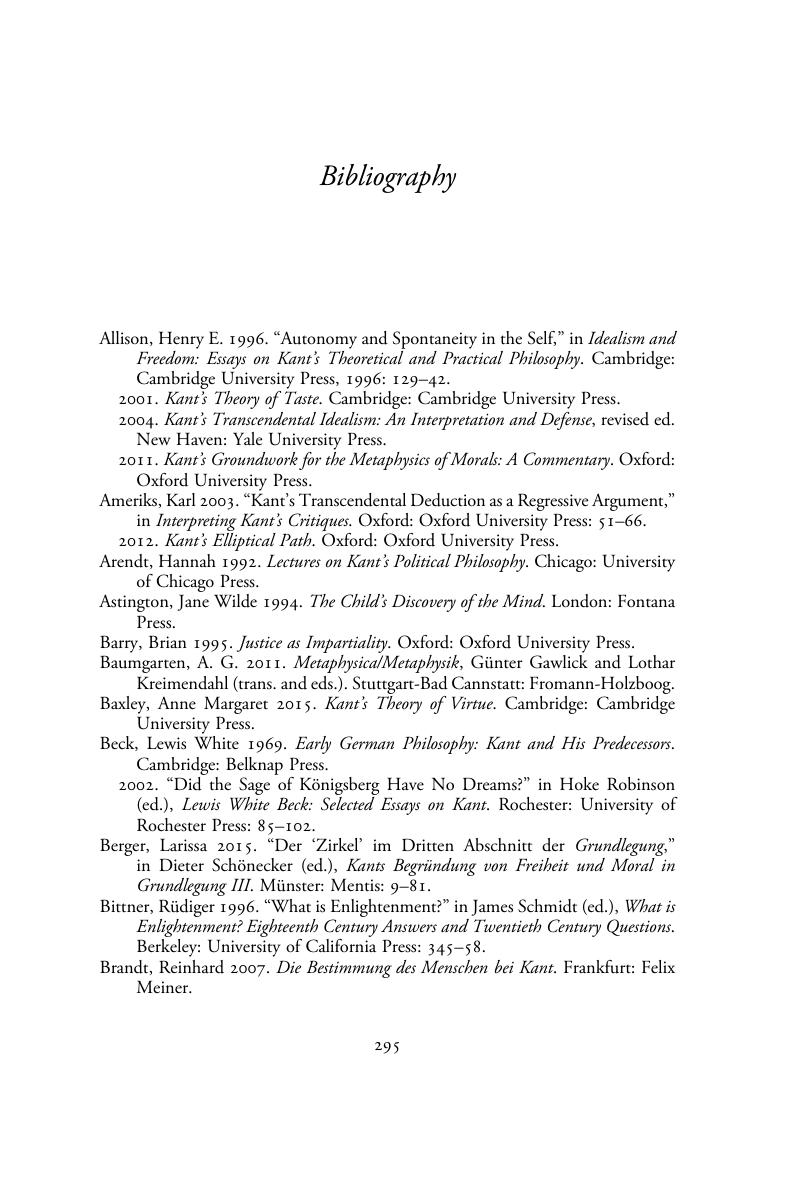Book contents
- Kant on Freedom and Spontaneity
- Kant on Freedom and Spontaneity
- Copyright page
- Dedication
- Contents
- Contributors
- Acknowledgments
- Abbreviations
- Introduction
- Part I Spontaneity: Pure Concepts of the Understanding, Imagination, and Judgment
- Part II The Inner Value of the World: Freedom as the Keystone of Kant’s Moral Philosophy
- Part III Freedom as Autonomous Willing: Kant’s Sensible Agent
- Part IV Freedom on a Bounded Sphere: Kant’s Political Philosophy
- Postscript
- Bibliography
- Index
- References
Bibliography
Published online by Cambridge University Press: 07 September 2018
- Kant on Freedom and Spontaneity
- Kant on Freedom and Spontaneity
- Copyright page
- Dedication
- Contents
- Contributors
- Acknowledgments
- Abbreviations
- Introduction
- Part I Spontaneity: Pure Concepts of the Understanding, Imagination, and Judgment
- Part II The Inner Value of the World: Freedom as the Keystone of Kant’s Moral Philosophy
- Part III Freedom as Autonomous Willing: Kant’s Sensible Agent
- Part IV Freedom on a Bounded Sphere: Kant’s Political Philosophy
- Postscript
- Bibliography
- Index
- References
Summary

- Type
- Chapter
- Information
- Kant on Freedom and Spontaneity , pp. 295 - 304Publisher: Cambridge University PressPrint publication year: 2018



